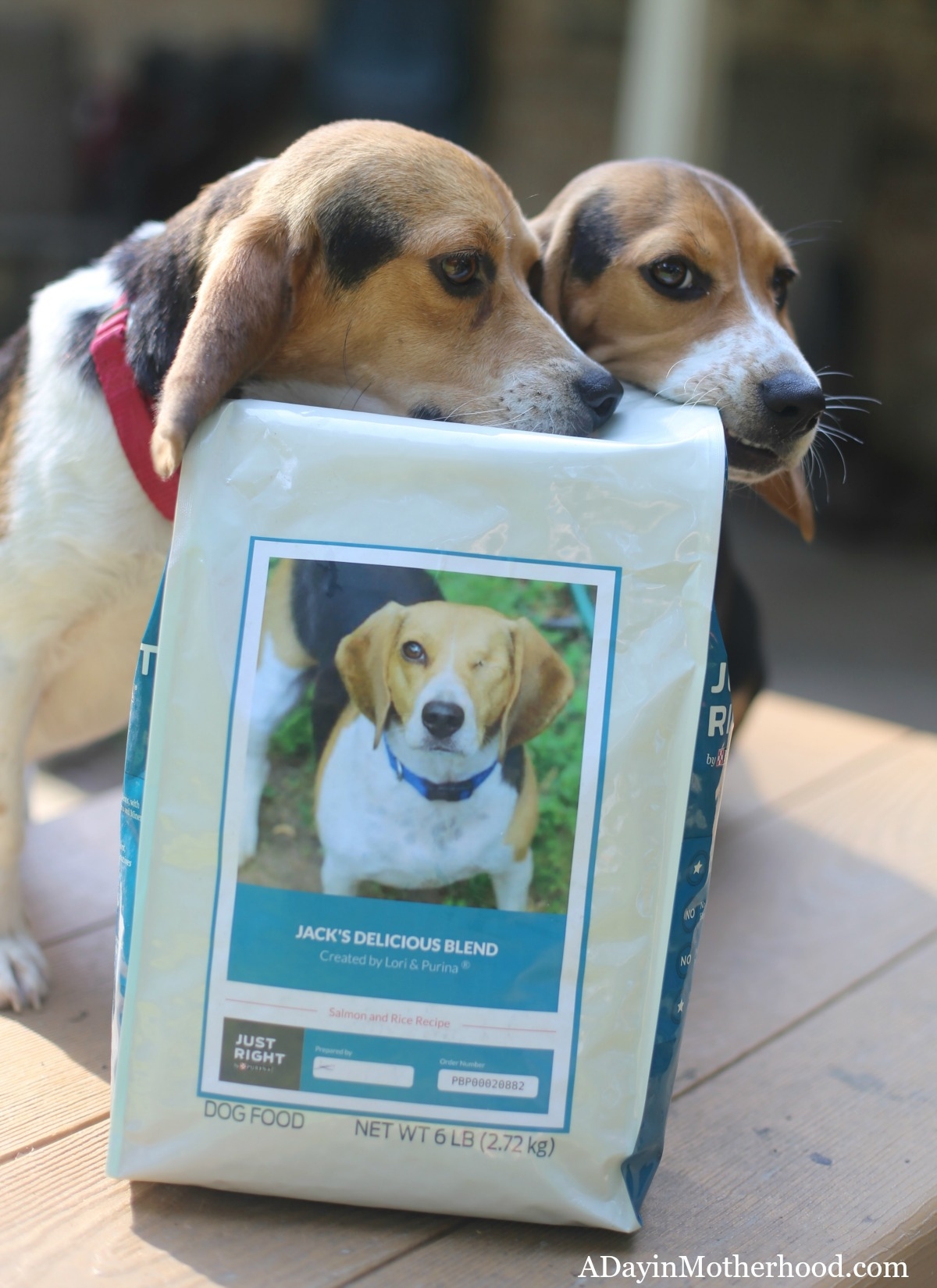**This conversation about Just Right by Purina is brought to you by Purina. All opinions are my own.** #DogsofJustRight #ad

Do you ever wish that you had a veterinarian on call to ask any question? As a mom to four beagles, yes, we added the mischievous Miss. Kylie Ann to our pack last month, and a slew of foster dogs coming in and out of the house, I often wish I had gone to vet school after college. But, I didn’t so I usually rely on the occasional visits to my own vet and google. This month, however, I was lucky enough to be able to ask Dr. Kurt Venator, Chief Veterinary Officer at Purina some serious questions that have been on my mind. I have met Dr. Kurt several times during my trips with Purina and have always appreciated his honest and straightforward approach to pets and their care. I also feed my dogs personalized dog food from Just Right by Purina so I am always interested in what the scientists, and the vets, of the company have to say about my dogs food. So, I asked… How do I make a decision on Grain vs No Grain Dog Food and Can I Feed All of my Dogs the Same Food?

Grain vs No Grain Dog Food
I have heard and read a lot of information on the benefits of grain vs no-grain. I have had Jack on both based on trickles of information I have gotten. Can you please explain to me – in laymen’s terms – what the difference is and how I make the decision on what to feed?
Grains, once widely seen as good for dogs, have recently been called into question. Perhaps because gluten allergies and intolerance are on the rise for people, dog owners are now wondering if grains are bad for their dogs. But is this actually true? Unless your dog has a grain allergy, grains are not harmful.

There’s a myth out there not supported by veterinary medicine that grains cause allergies. That is not the case. The reality is that true food allergies are extremely low in dogs and cats, and the offending substances usually are not grains. In fact, grains are a good source of sub nutrients and are beneficial for most dogs. That means the chance of your dog having a grain allergy is small. Less than 1% of dogs are sensitive to grains and need to avoid consuming them in their food, while 99% of dogs are able to reap the nutritional benefits dog food with grain has. Even though grain allergies are rare in dogs, you may feel more comfortable feeding grain-free food. This is a personal decision for every owner to make. There are some considerations you can take into account as you decide what to feed your dog.
How do grains benefit dogs?
Grains are actually an excellent nutrient source. Grains are packed with nutrients and provide carbohydrate, fat, and antioxidants. That means the grains in dog food can support healthy, skin, and hair, plus support healthy immune systems and more. Also, there are many different kinds of grain: wheat, barley, corn etc. Each has its own combination of nutrients, and many are easily digested by dogs. Dog foods containing grain balance the grain’s nutrients with nutrients provided by other ingredients to create a nutritionally complete dog food. Are dogs carnivores? Have you ever thought of your dog as a wolf? He isn’t. Really, dogs are not carnivores or just meat eaters. Dogs are omnivores. This means dogs can eat and digest meat as well as grains (i.e. starches). In fact, a recent study published in the journal Nature announced a discovery that explained dogs’ genetics and the implication it holds for their nutritional needs. Dogs have been omnivores for centuries and their bodies have evolved to easily digest starches.
What kind of food is best for your dog?

Choosing the best food for your dog can be a challenge. There are many foods available for dogs–some are recipes that are balanced with grains and animal sourced protein, others that are grain-free. Whether the food is grain-free or not, looking at labels can indicate if it is appropriate for your dog. When studying labels, Dr. Venator advises to be on the lookout for foods that are:
- Formulated as complete and balanced
- Meets AAFCO guidelines
- Accounts for life stage and lifestyle
- A dog’s nutritional needs change as he grows from a puppy to an adult dog to an older dog.
- Meets any special needs
- Weight management issues, sensitive skin or stomach, breed size i.e. large, small or toy breeds and other factors may impact nutritional needs for dogs.
Now that I understand that, I had one more question for Dr. Kurt:
I have multiple dogs – four as of now along with two foster dogs – and I tend to feed them the same foods. Is it OK to feed dogs of different sizes and ages the same foods? Aside from Jack, who gets Just Right by Purina, it is a real time saver to give them all Purina ONE.

The Association of Animal Feed Control Officials (AAFCO) statement on a dog food label verifies that the food provides complete and balanced nutrition for four major categories: puppies, pregnant or nursing pets, adults, and all life stages. If all of your dogs are adults, then feeding one diet that has an AAFCO statement for adult pets is appropriate.
If your dogs are of various ages, such as puppy and adult life stages, then you should select a food that is appropriate for all life stages. If you often have a variety of different aged dogs in your household over time, then I would suggest selecting an all life stage diet for your mainstay.

These answers are really beneficial for me as a pet owner. I know that Jack has done really well on Just Right by Purina and now I am even more confident that I am feeding him the best food I can!
Order your personalized dog food now!







Leave A Comment